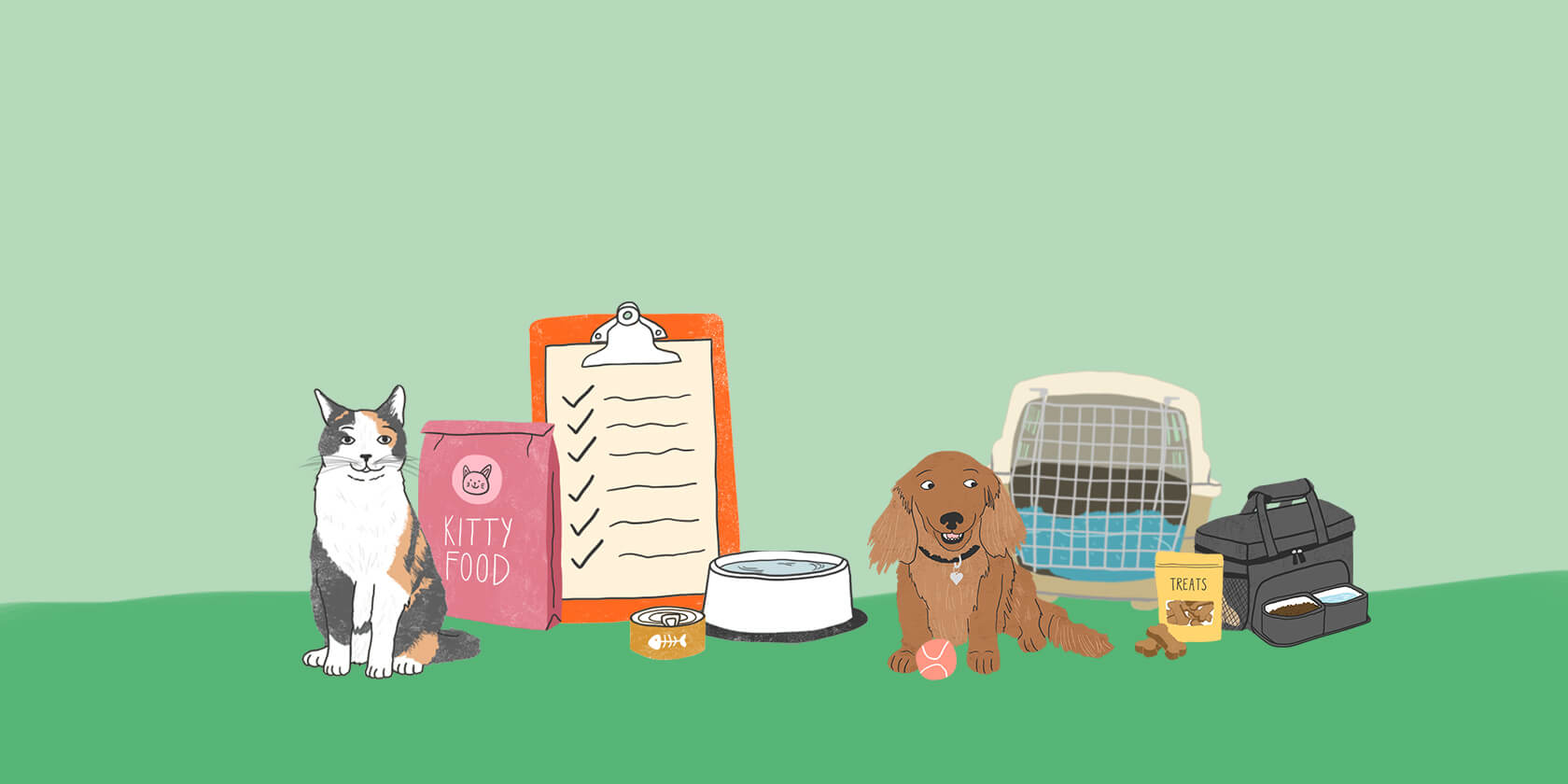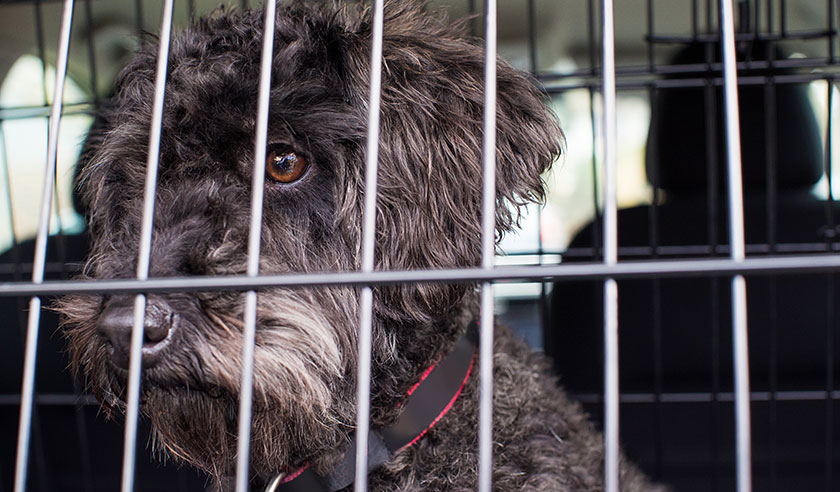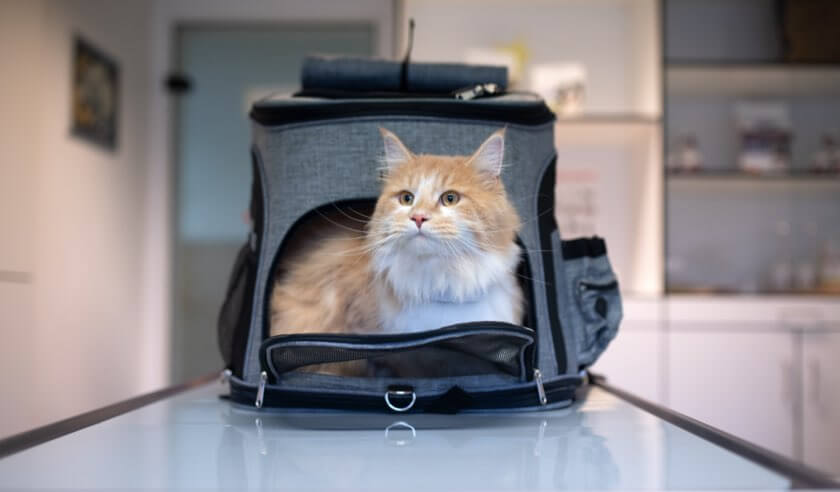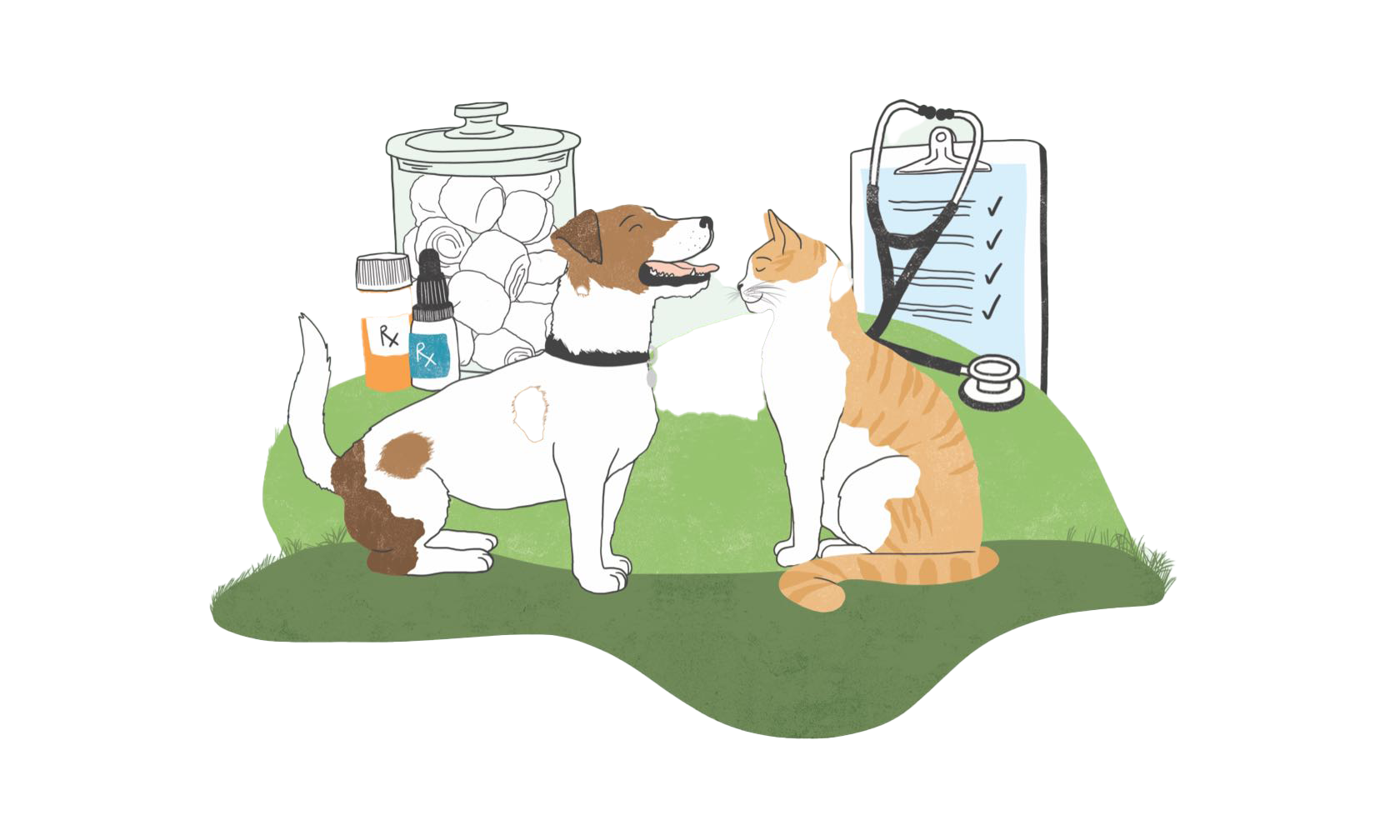It's important to have a pet preparedness plan in place in the event of a crisis or emergency. Consider the following steps when preparing your plan:
- Designate a close family member or friend to care for your pets in the event you are unable to.
- Keep your pets up to date on their vaccinations and have copies of their health records in a safe place in your home.
- Microchip your pet and ensure contact information is current. Pets should also always wear a collar with a proper ID tag.
- Create a pet preparedness kit.
Pet Preparedness Kit
There are many things that can be added to your preparedness kit to ensure you and your pets are prepared for any crisis, including quarantining and natural disasters. Print your preparedness kit checklist from the CDC to get started. As always, if you have questions or need assistance with your preparedness kit, reach out to your veterinarian as they can offer helpful advice and guidance.

Documents
You'll want to keep all your pet's medical records handy should you ever need them in an emergency. Your best option is to include photocopies of the following records in your kit, so you don't have to risk losing the only copy or forgetting where you put it.
- Rabies certificate
- Vaccination records
- Medical summary (a summary of your pet's medical history)
- Medical prescriptions (in case you forget their medication or need a refill)
- Current heartworm test result (for dogs)
- Current FeLV/FIV test result (for cats)
Other Written Documents to Include
- Your contact information (address, phone number, other appropriate means of contact)
- Photocopy of your pet's registration information (proof of ownership, adoption records, etc.)
- Pet description(s) (breed, color, size, identifying features)
- Recent photos of each pet
- Waterproof storage for documents
- Microchip information (microchip number, name and number of the microchip company)
- Double check that the contact information associated with the microchip is accurate and up-to-date
- Instructions for boarding your pet, including your contact information, their feeding instructions, medication instructions, vet info, up-to-date vaccine records, and behavioral notes)
Food & Water
Remember to pack enough for each pet. If you're packing a preparedness kit to have on hand in case of unexpected emergency, replace any expired food. When packing water, opt for sealed water bottles so the water stays fresh.
- Two-week supply of food and water for each animal
- Non-spill food and water dishes
- Manual can opener (for canned food only)
- Feeding instructions for pet(s)
Medications
Since prescription medications can't be purchased in bulk ahead of time, your pet's current medications will need to be packed in your kit in real time.
- Two-week supply of medication(s)
- One-month supply of flea, tick, and heartworm preventatives
- Instructions for giving medication
Additional Supplies
- Leash, collar with ID tags, and harness (for cats and dogs)
- Litterbox and two-week supply of litter (cats)
- Poop bags
- Your pet's favorite toys
- Appropriate-sized pet carrier with bedding
- Pet first aid book and first aid kit including gauze, bandages, thermometer, etc.
- Basic grooming tools (brush, nail clipper)
- Cleaning supplies for accidents (paper towels, plastic bags, disinfectant)
A preparedness plan will help you and your pets remain calm and eliminate unnecessary stress. Remember, the simple act of petting and snuggling can reduce anxiety for both people and pets in the midst of an evolving crisis.
ZPC-00666R1
- https://www.cdc.gov/healthy-pets/emergency-preparedness/preparedness-kit.html
- https://www.avma.org/resources/pet-owners/emergencycare/pet-first-aid-supplies-checklist





